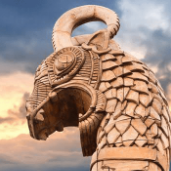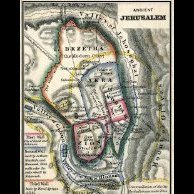-
Recently Browsing 0 members
- No registered users viewing this page.
Announcements
-
Topics
-
Latest posts...
-
117
Frozen in time: British expats losing out on pensions in Thailand
This is a really poorly written article in many ways. I thought people had lost access to their pensions. And how does not getting a yearly increase leave people living "hand to mouth". Geez! -
10
Watch: Man Sparks Outrage by Smashing $4,000 Autographed Taylor Swift Guitar
Who's Taylor Swift?😉 -
27
Aftermath of Hurricane Helene: Power Outages, Rescue Efforts, and Rising Death Toll
Dozens? They're going to need thousands. Which were requested and approved in 2020, but cancelled by the FCC in 2023. The cynic in me says they were cancelled because the Dems are mad at Elon... https://spacenews.com/fcc-upholds-denial-of-starlinks-900-million-rural-broadband-subsidies/ -
7
Bangkok Bank + insurance (package deal)
Hopefully he wasn't a fool and paid the 22k? -
117
Frozen in time: British expats losing out on pensions in Thailand
All they longing for was just some sun and a beer. And look what happened -
117
Frozen in time: British expats losing out on pensions in Thailand
All near 20% paid by you for your entire working career. No employer match? In USA employees pay about 7.5 % and employer pays another 7.5 %. 15 % into the coffers. At retirement age and withdrawing it is taxed by the federal government (80%). Medicare payments are also deducted from SS payments. Payments are subject to COLA (cost of living adjustment) when given. -
117
Frozen in time: British expats losing out on pensions in Thailand
Whilst the basic State Pension cannot be garnished to repay any (Fraudulent) overpayments, other "Benefits" (Including additional Pension Credits) can be:- Sanctionable benefits The following benefits can be reduced or stopped if you commit benefit fraud: Carer’s Allowance Employment and Support Allowance Housing Benefit Incapacity Benefit Income Support Industrial Death Benefit Industrial Injuries Disablement Benefit Industrial Injuries Reduced Earnings Allowance Industrial Injuries Retirement Allowance Industrial Injuries Unemployability Supplement Jobseeker’s Allowance Severe Disablement Allowance Pension Credit Universal Credit War Disablement Pension War Widow’s Pension War Pension Unemployability Supplement War Pension Allowance for Lower Standard of Occupation Widowed Mother’s/Parent’s Allowance Working Tax Credit -
187
Bye bye Electric & Hello Hydrogen?
You might be interested to know that one of the major manufacturers of green hydrogen agrees with McKinsey, Hydrogen has no place in passenger cars and will be used for long haul trucking. -
184
School Bus Fire Claims Multiple Lives and Injures Young Students in Rangsit
I'm not buying this balony. there's more to it than fleeing because of shock. Was he DUI .... my guess is YES he was. -
5,567
-
8
BREAKING NEWS IRAN ATTACKS ISRAEL
That's the plan, step 1. Step 2 is to starve Iran and force political change. -
184
School Bus Fire Claims Multiple Lives and Injures Young Students in Rangsit
It is very sad that these poor souls had to die this way. They and their families deserve prayers. Also it must have been horrible as a firefighter or paramedic to be there. I just hope that they will learn from this and go back to the old days when we had fire drills in the bus to know how to escape. Obviously this doesn’t always work but it certainly helps. -
184
School Bus Fire Claims Multiple Lives and Injures Young Students in Rangsit
Ghouls. Agreed, when you look at the CCTV there are no flames or explosion and in the zoomed in part you can see the bus lurch, stop and pale grey smoke starting to billow over the bus, which indicates to me extreme heat has generated from under the chassis area fanned by the forward movement of the bus, when stopped erupted into flame and fuelled by the insulation, wall and ceiling panels, seats, quickly got a hold and spread. You can see other ghoul-footage of the bus burning and the 'seat' of the fire is clearly discernible. The Road Transport and Fire Investigators will prove the origins of the fire. -
117
Frozen in time: British expats losing out on pensions in Thailand
After 40 gruelling years in an office without planning for a retirement it seems .. guess it was surprise when he retired after all who knew eh ? -
58
Toppings for toast?
I love them so will put it on/in almost anything where I want a salty/savoury flavour. Not cheap in Thailand though (Works out at about 30THB per cube) so I bring 24x12 boxes back from my annual UK trip.- 1
-

-
.png.3b3332cc2256ad0edbc2fe9404feeef0.png)







.thumb.jpg.2390942dba698ccc87b36df4ddc7fb65.jpg)
Recommended Posts
Create an account or sign in to comment
You need to be a member in order to leave a comment
Create an account
Sign up for a new account in our community. It's easy!
Register a new accountSign in
Already have an account? Sign in here.
Sign In Now